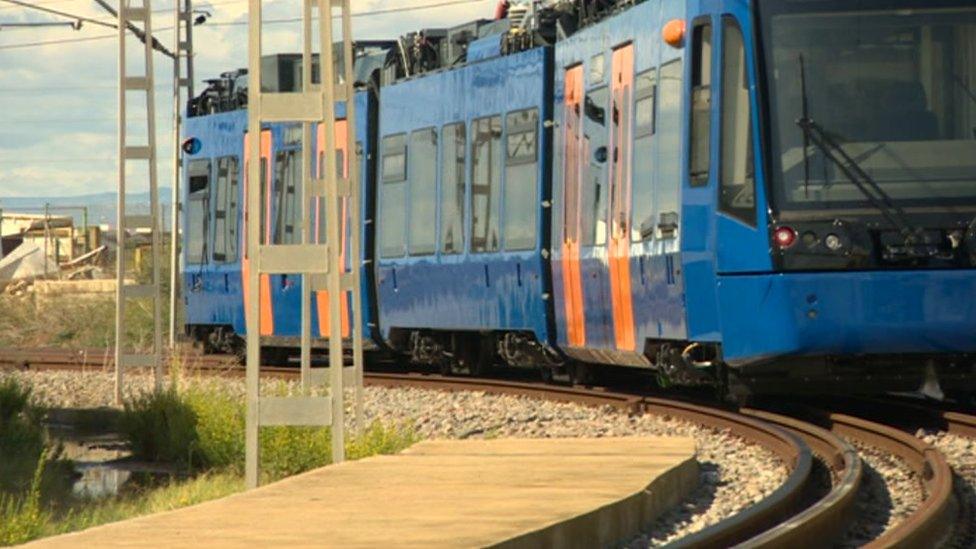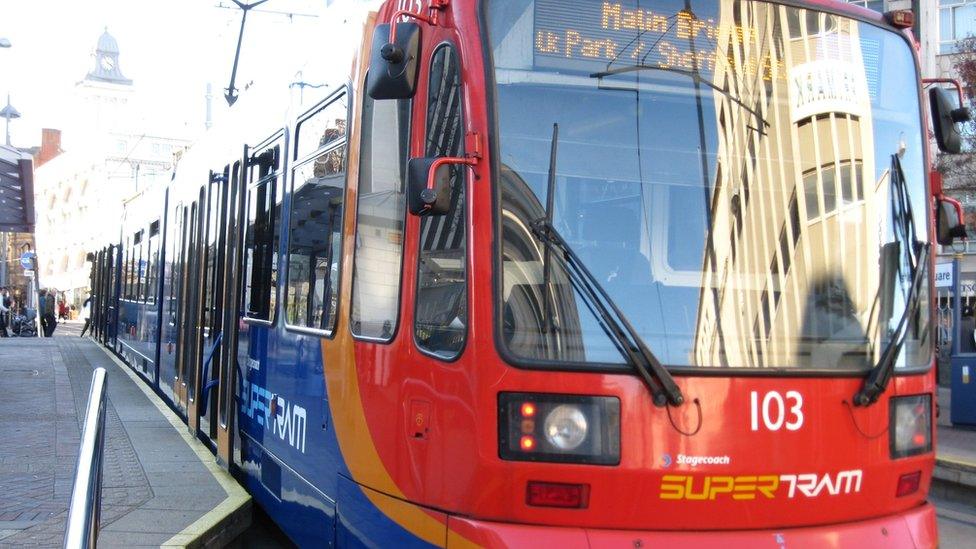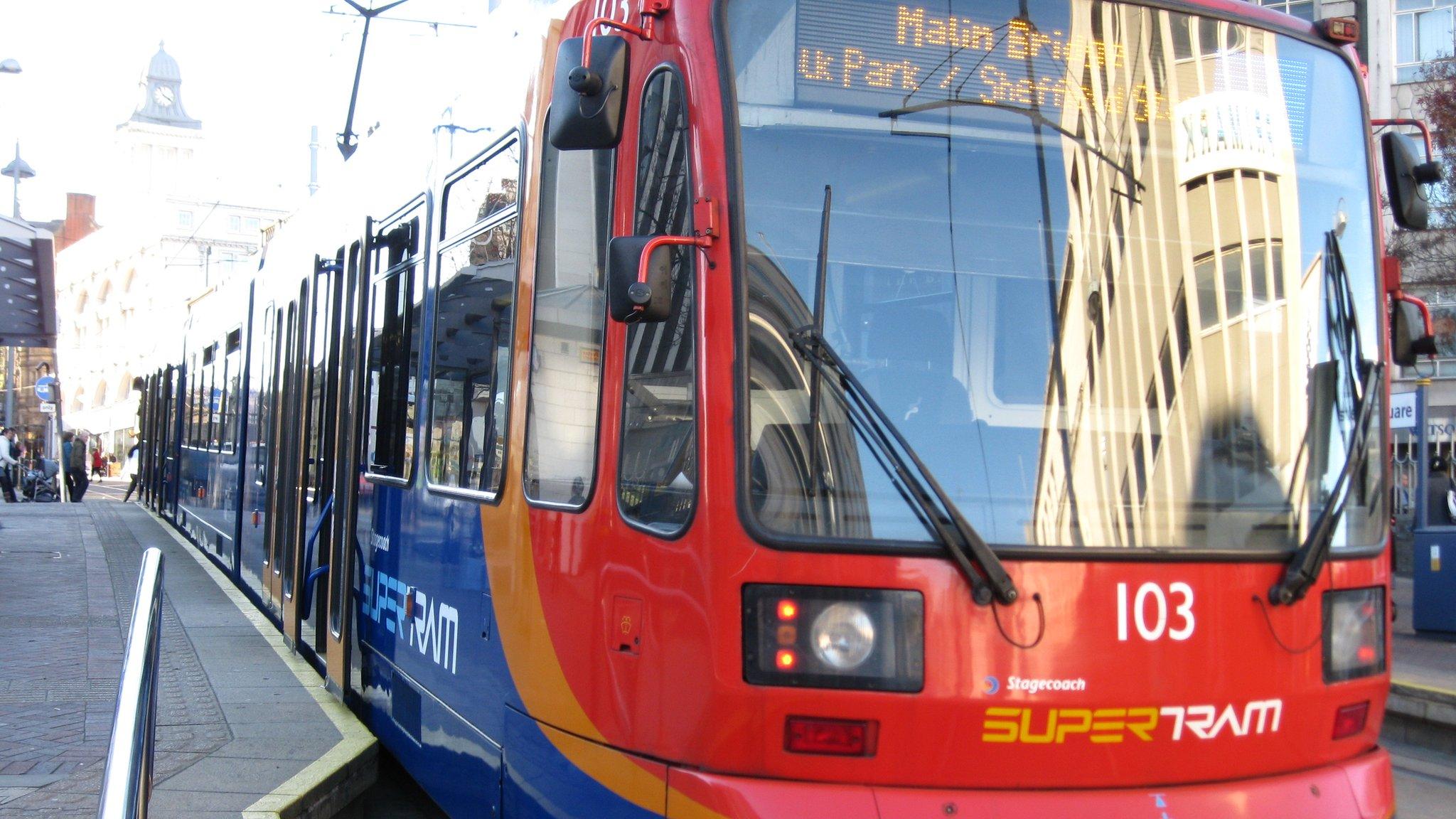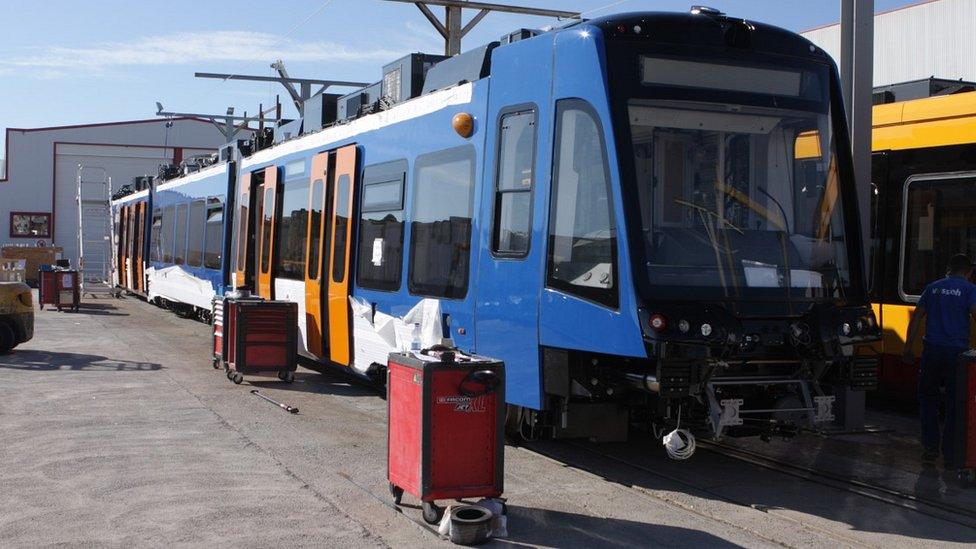Sheffield-Rotherham tram-train scheme costs rise to £75m
- Published

Tram-train services between Sheffield and Rotherham are due to begin in 2018
The UK's first tram-train scheme will cost five times more than planned, the National Audit Office has said.
The pilot project will enable trams to run on existing train tracks between Sheffield and Rotherham as well as on tram lines on the city streets.
The scheme, originally due to cost £15m will now cost £75m and not be complete until May 2018 - nearly three years overdue.
Network Rail said the scheme was a "complex and challenging" one.

The tram-train will join up with the existing tram network between Sheffield and Rotherham
A National Audit Office report, external explains how the scheme was almost cancelled twice due to rising costs and delays.
The report also found Network Rail did not initially have a full understanding of the costs involved and had to revise them as the scheme progressed.
'Real benefits'
The Department for Transport (DfT) has not yet evaluated the value for money of the pilot project or the extent to which it might reduce the costs of introducing similar schemes in other cities, it added.
The scheme aims to test the costs and operational issues of the tram-train technology and to gather and publish information to assist promoters of similar schemes.
Despite the issues, Network Rail and the DfT has decided to continue with the project.
Rob McIntosh, from Network Rail, said: "Sheffield to Rotherham tram-train is an ambitious pilot, a UK first, that will bring new travel choices to people of South Yorkshire when services begin in 2018.
"The project continues to be complex and challenging but will deliver real benefits for thousands of daily commuters."
He said "good progress" had been made and a new project team was in place to drive the scheme to an end.
Mr McIntosh said costs and timescales had moved as the project had to "incorporate more significant infrastructure changes than originally planned".
- Published25 November 2016

- Published28 November 2015

- Published18 May 2016

- Published8 October 2015
